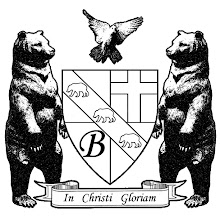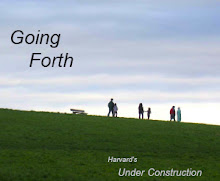From
yahoo.com:
Tuesday, April 15 -- Washington, D.C. 4 p.m. -- Arrival at Andrews Air Force Base, greeted by President George Bush and Laura Bush
Wednesday, April 16 -- Washington, D.C.
Pope Benedict XVI's 81st birthday
10:30 a.m. to 12 p.m. -- Meeting with the president at the White House
President George Bush and Laura Bush welcome Pope Benedict XVI to the White House. This is only the second time in history that a pontiff has visited the White House.
Noon -- Departure via popemobile -- parade route open to the general public
5-7 p.m. -- Vespers and address to U.S. bishops at the National Shrine
The Basilica of the National Shrine of the Immaculate Conception is the largest Roman Catholic church in the United States and North America and one of the 10 largest churches in the world.
Thursday, April 17 -- Washington, D.C.
10 a.m. -- Mass at new Nationals Park
5 p.m. -- Address to Catholic educators at the Catholic University of America
6:30 p.m. -- Interreligious gathering at the Pope John Paul II Cultural Center adjacent to Catholic University
The pope will meet with representatives of other religions on the theme "Peace Our Hope." The audience will include some 220 individuals from five religions: Buddhism, Hinduism, Islam, Jainism, and Judaism. Pope Benedict XVI will give an address and will then be presented with symbols of peace by five young people of different faiths.
Friday, April 18 -- New York
8:30-10 a.m. -- Flight to New York City
10 a.m. to 1:45 p.m. -- Address to the United Nations
During his scheduled three-hour visit to U.N. headquarters, the pope will meet with Secretary General Ban Ki-moon and other leaders. It is the fourth papal visit to the United Nations, following those of Paul VI in 1965 and John Paul II in 1979 and 1995.
6 p.m. -- Ecumenical prayer service -- St. Joseph Parish, Upper East Side of Manhattan
Saturday, April 19 -- New York
Third anniversary of Pope Benedict XVI's pontificate
9-11:15 a.m. -- Mass for clergy and religious at St. Patrick's Cathedral
Participating in the mass will be 3,000 deacons, priests, and religious men and women from throughout the United States. At least two representatives from each diocese in the country will be present.
4:30 p.m. -- Blessing of youth with disabilities at St. Joseph Seminary in the Dunwoodie section of Yonkers, a few miles north of New York City. Pope John Paul II visited on Oct. 5, 1995.
5-6:30 p.m. -- Rally with seminarians and young people at St. Joseph Seminary
Approximately 25,000 young Catholics from throughout the United States, including 5,000 seminarians, will be in attendance at St. Joseph Seminary, 201 Seminary Avenue, Yonkers.
Sunday, April 20 -- New York
9:30 a.m. -- Visit to ground zero, site of the former World Trade Center
The pope will visit the site of the Sept. 11, 2001, attack on the World Trade Center, offer a blessing, and greet representatives of the Port Authority, New York fire and police workers, those who survived the attacks, and family members who lost loved ones in the attack.
2:30 p.m. -- Mass at Yankee Stadium
8-8:30 p.m. -- Departure from John F. Kennedy International Airport
Approximately 3,250 guests will bid farewell to the pope in Hangar 19 of JFK Airport.
8:30 p.m. -- Departure via Shepherd One
(Check out
pope2008.com and
ewtn.com for extensive coverage of the pope's visit.)
 In case you missed Pope Benedict XVI's trip to the United States a couple weeks ago, or if you just couldn't quite assimilate all that he said while he was here, here's a very brief wrap-up of his visit. It's basically an abridged version of his weekly audience today, courtesy of the Vatican:
In case you missed Pope Benedict XVI's trip to the United States a couple weeks ago, or if you just couldn't quite assimilate all that he said while he was here, here's a very brief wrap-up of his visit. It's basically an abridged version of his weekly audience today, courtesy of the Vatican:














